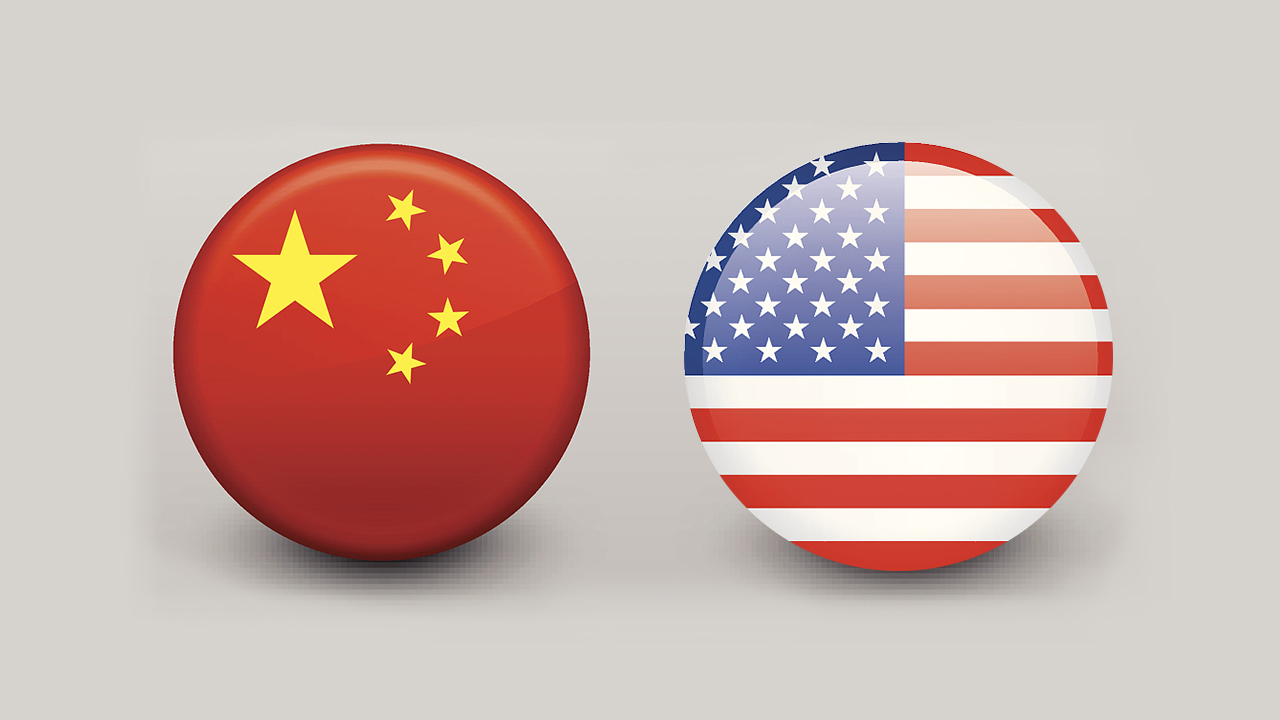
(Photo: CGTN)
Recently, a small group of people in the United States, mostly former intelligence officers and retired military officers, released an open letter calling on the Trump administration to "Stay the Course on China."
Littered with harsh criticism of China, the letter largely represents the voice of China hawks in the United States. Those people have arguably played an important role in the history of China-US relations. However, their one-sided, superficial and baseless understanding is in no doubt deteriorating the current atmosphere.
This letter argues that in their political system, "Politics is the norm, and war is the exception." This kind of opinion, regardless of the wars that the US has waged since modern times, is full of the arrogance of American exceptionalism and not worth reading at all.
The antagonism and prejudice against China, which does have a base in Washington, deserve the highest vigilance. The current change of perception of China has led to the emergence of an increasingly tough consensus in Washington.
This shift in consensus is so profound that it will have a significant impact on the future of China-US relations.
First of all, the changing nature of bilateral relations over the past four decades has determined that even a slight move in one part may have a huge impact on the whole situation. This is especially evident now due to the return of power politics.
It is sad to admit that, in the context of China-US relations, there has never been so much discussion of the "Thucydides' trap." Given their ideological stereotypes, those people don't think the US can peacefully co-exist with China. Whether or not the two countries are "destined for war," it will be difficult to change the existing strategic stalemate unilaterally unless both sides work together.
The overwhelming paranoia towards China within the US strategic community is driving the relationship into an irretrievable situation.
Besides, the current reckoning of the US policy towards China is comprehensive and revolutionary. This letter, along with the earlier one by a group of China hands in Washington, to some extent, shows that the debate on China policy is here to stay.
After careful examination, however, there is no fundamental difference between China hawks and moderates in judging the bilateral relationship right now. The only meaningful divergence is on how to meet China's challenge to the United States.
To many people, a thorough strategy change should be in place immediately, because neither the "carrot" nor the "stick" could force China to do what the US wanted.
Now that the debate is coming to an end, there will be no room for rational and objective discussions. As the China-US strategic competition intensifies, such differences will be less visible and thus influential.
Finally, there is a weak resistance to counter the hawkish force. On the positive side, one could always find friendly or rational voices within the US to conclude that there is no rock-solid consensus on China, such as the local government and the business community. Even ordinary people, usually indifferent to international relations, has demonstrated greater favorability toward China compared with previous polls.
Yet the anti-China behavior or alliance has increasingly become so powerful that it will have a real impact on bilateral relations. It is the dominant force in Trump's small decision-making circle that formulated many national security and defense reports targeting China as both imminent and long-term threat.
It is believed that the tough position on China will not go anywhere after Trump's presidency in consideration of strong bipartisan consensus on Capitol Hill. There is little hope of a reversal of the China policy in the foreseeable future.
The continuous hawkish view, on one hand, will seriously undermine our confidence in the relationship, impede practical cooperation, and cast a shadow over the future trajectory. Once the cooperative mindset is shaken, confidence building will be extremely difficult.
On the other hand, it is also very bad news for the world economy and global stability. China and the US together may not solve all problems in the world, but almost all problems cannot be easily solved without cooperation between the two.
It is so disappointing that the hawks simply ignore the consequence and choose to fight against, not with, China. One could only hope that the underlying force will stand out and effectively stop the current trend from continuing.
Where will the China-US relations go? No one will know until the dust settles.


